JET: Can you tell us a little about ROT & RUIN and why readers should add this to their must have collection?
JONATHAN MABERRY: ROT & RUIN is a novel about how a group of teens deal with a world that the adults think is broken beyond repair. All of the adults lived through First Night, which is what they call the beginning of the zombie plagues; and as a result of those experiences, every adult has some degree of post traumatic stress disorder. It’s ruined the adult culture, and their lack of faith in any possible future trickles down to the teens and that’s where the tension begins. The teens are young –they expect to have long lives in front of them, they don’t want to hear about ‘end of the world’.
So the story deals with coming of age in a broken world, learning the value of human life, becoming strong, falling in love, fighting for survival…and determining one’s own fate.
It also has a lot of humor, horror, action, and zombie carnage!
JET: I thoroughly enjoyed both Patient Zero and Dragon Factory and your hero Joe Ledger has become one of my favorites. Who had the most influence in your life that aided in the creation of Joe Ledger and why?
MABERRY: Probably Travis McGee-- the character in John D. MacDonald’s series of twenty-one mystery-thrillers. McGee was an intellectual but also very physical. His morals and politics are to the left of moderate, which makes him a nice blend of realist and idealist. He generally thinks his way through a problem, and then if there are no other choices, he uses violence.
Travis is also emotionally damaged, and that makes for a compelling, layered hero.
Joe Ledger is damaged goods. He’s psychologically fractured because of some ugly boyhood trauma, but he’s learned to use that damage. He’s also trained extensively in martial arts and he’s been through Army Airborne Ranger training and the police academy. He has all of the physical components in place; and with PATIENT ZERO, he finds purpose and direction.
JET: Have you ever seen a dead body? How has that influenced your writing?
MABERRY: Sure. I worked as a cook in a hospital many, many years ago. I was friends with a morgue attendant and he took me on a tour. It was creepy for a few minutes, and then it became very sad. That’s the first time that I really equated ‘corpses’ with ‘people’. I mean, we all know that the dead were people, but we forget that when we see a dead body, especially one who has died violently in a car accident or explosion. At that point our fear of the dead and our revulsion tend to insulate us by making us see them as something NOT human.
Over the years I’ve attended a couple of autopsies; and I was bedside when two different people (my father and my best friend) died. I’ve also seen thousands of crime scene photos, particularly while working as an expert witness for the Philadelphia District Attorney’s office for murder cases involving martial arts.
The unpleasantness, the loss of dignity, the vulnerability, and the visceral horror of the dead inform all of my fiction. It’s difficult for a writer to accurately describe the emotional and psychological effects of death unless they’ve been in the presence of the dead.
JET: What’s been your most challenging hurdle on the road to publication?
MABERRY: Taking the risk to become a full-time writer. For most of my career I worked day jobs of various kinds (college teacher, bodyguard, bouncer, graphic artist, etc.) while writing on the side. I did pretty well, selling a lot of magazine articles, package inserts, product descriptions, and other things, but it was rarely enough to live on.
Then, some years ago, my wife made an offer to me: she’d work for five years while I concentrated on my writing. At the end of five years I would either be making a good wage as a writer, or I’d go find a job and go back to writing on the side. It was a challenge, and it was often financially very tight, especially as the economy slowly eroded. But then everything changed. Now I make a very good living (and my wife no longer has to work!).
JET: What was your favorite moment in the journey?
MABERRY: Landing a literary agent. I got a very good one and that gave me a lot of confidence in where things might go.
JET: Which authors had the most influence over you growing up?
MABERRY: Ray Bradbury and Richard Matheson. I met them when I was a kid and they each gave me great advice about writing; but I haven’t seen them since. They’re amazing writers and I owe them a great debt. I re-read Bradbury’s Something Wicked This Way Comes every Halloween; and I read I Am Legend every summer –something I’ve been doing since I was fourteen. I know them both pretty much by heart.
JET: When did you know you wanted to take the plunge into the writing world?
MABERRY: When I was old enough to form that thought in my head. I’ve always wanted to write, always knew that I would write. Over the years my faith in my own writing career has fluctuated, and there were times when my focus was mainly directed elsewhere. There was a large part of the life spent teaching jujutsu, women’s self-defense, and martial arts history at Temple University; and giving workshops on ‘arrest and control’ and ‘immediate threat resolution’ to all levels of law enforcement, including SWAT.
But I always wrote.
What surprised me, though, was when I made the decision to write a novel. I was always a nonfiction guy, but I took a chance and wrote GHOST ROAD BLUES in eighteen months That book changed everything. It got me an agent. It won several awards including the Best First Novel Bram Stoker Award, and it helped me fall in love with fiction.
JET: What’s the craziest thing you’ve done in the name of book research? Most interesting fact you uncovered?
MABERRY: I did ride-alongs with Forensics Units in Philly; and I participated in a SWAT training exercise to determine how best to stop fast and slow zombies.
JET: Of all the novels and stories you’ve written - which one is your favorite? Why?
MABERRY: That answer changes daily. Partly because I love every book I’ve written (they’re my children); and partly because I write in different genre.
Best answer I can give is…my favorite new novel is ROT & RUIN. My favorite thriller is THE KING OF PLAGUES (3rd in the Joe Ledger series, due out in March).
JET: Any advice for the novices out there?
MABERRY: Here are some tips that I typically share when teaching or lecturing on writing:
First, learn the craft. Most writers are born with some kind of storytelling ability (maybe it’s a gene), but good writing is the result of storytelling plus learned skills. Take the time to learn about voice and point of voice, about figurative and descriptive language, about action and tension. Learn how to construct a sentence and a paragraph.
Next, write an outline. Know where your story is going to go so that you don’t waste time writing scenes which don’t contribute to that goal. That said, once you have an outline allow the story to grow organically so that you don’t force it to fit. A technique that works for me is that I write the first and last chapters of a book; then I write an exploratory synopsis –which is an essay written for myself in which I work out the story and the narrative logic; and then I write an outline.
One crucial thing is: NEVER revise until you are finished a first draft. Never. Ever. Revision of that kind is a momentum-killer. It’s a quicksand pit. Write it down fast and ugly and then fix it in the rewrite.
Also, read the genre. Read the heck out of it. Read enough to know what’s good and not so good (from your point of view). Fall in love with the genre…or don’t bother writing for it.
The second part of that piece of advice (and the reason most people step into the revision quicksand) is that you shouldn’t try to write a perfect piece. No one has ever done it, and no one can. Write a solid piece, pretty it up in the rewrite, and then send it out. Then work on something else. Perfection is by definition impossible for humans to attain. Stop wasting good writing time on it.
And last…and maybe most important of all…be relentless. If you love to write, then keep writing and keep sending it out.
JET: All right - now that I’ve hammered you with the big questions, let’s tackle my favorite (and geeky) quick ten. . .
JET: Paper or Plastic?
MABERRY: Paper
JET: Steak or Tofu?
MABERRY: Neither.
JET: Beach or Mountains?
MABERRY: Mountains
JET: Country or Rock-n-Roll?
MABERRY: Rock
JET: Horror or Comedy?
MABERRY: Horror
JET: Salty or Sweet?
MABERRY: Salty
JET: Angels or Demons?
MABERRY: Angels (yeah, I know it’s a girly answer. Sue me.)
JET: Silent Film Classics or Cheesy B Rated Horror?
MABERRY: B-rated horror
JET: Comic Books or Anime?
MABERRY: Comics. I grew up with ‘em and I write ‘em.
JET: 2012 Mayan prophecy believer or Ain’t gonna happen?
MABERRY: The Mayans did NOT predict that the world would end in 2012. Only one person claimed that, but it was someone who couldn’t actually translate the writings. All of the other hundreds of archaeologists who read the writings translated it correctly. No doomsday.
JET: Thank you for indulging me! Before we wrap this up, can you tell us what you're working on now? What's next?
MABERRY: Then I have my third Joe Ledger thriller, THE KING OF PLAGUES, hitting stores in March from St. Martin’s Griffin. I also have three mini-series from Marvel in the pipeline. MARVEL UNIVERSE VS THE PUNISHER is already running, and it’s a post-apocalyptic existentialist adventure. Very strange, even for me. Next up is BLACK PANTHER: KLAWS OF THE PANTHER, kicking off in October; and then in January we launch CAPTAIN AMERICA: HAIL HYDRA, a five-issue Marvel Event that follows Cap from World War II to present day. And my graphic novel, DOOMWAR, debuts in hardcover in October.
I’m currently writing DEAD OF NIGHT, a standalone zombie novel to be release by Griffin in Summer 2011.
Thank you so much for taking the time to chat on my blog.
Folks, you can find out more about Jonathan Maberry and his work at http://jonathanmaberry.com/. And if you haven't picked up one of his books, do it now. He knows how to spin a story and keep you on the edge of your seat.
Next week I have F. Paul Wilson, Joe Konrath, Jeff Strand and Blake Crouch on tap talking about their new book Draculas - along with my review of the book.
Until next week . . .
Ciao
JET





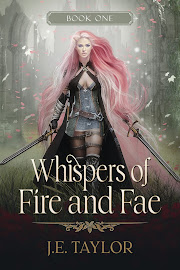

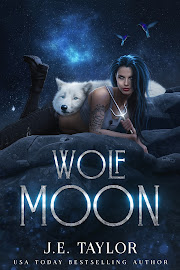
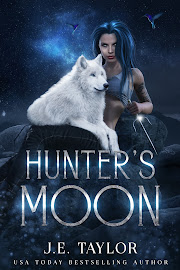





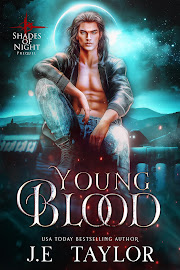
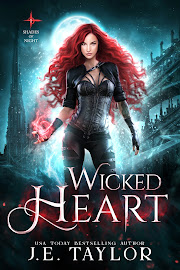
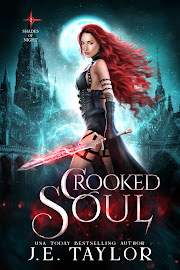
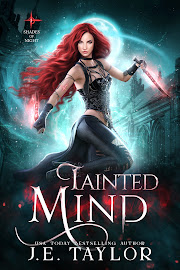
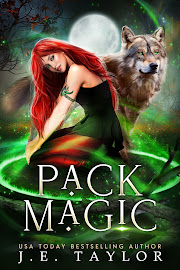


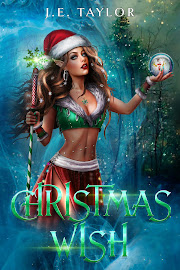
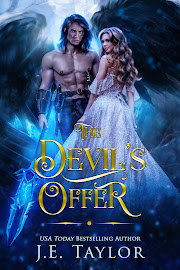

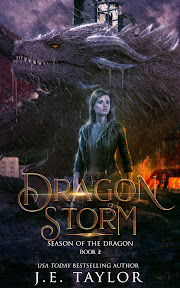





















































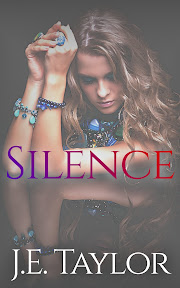

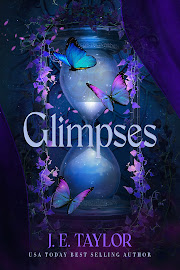
No comments:
Post a Comment